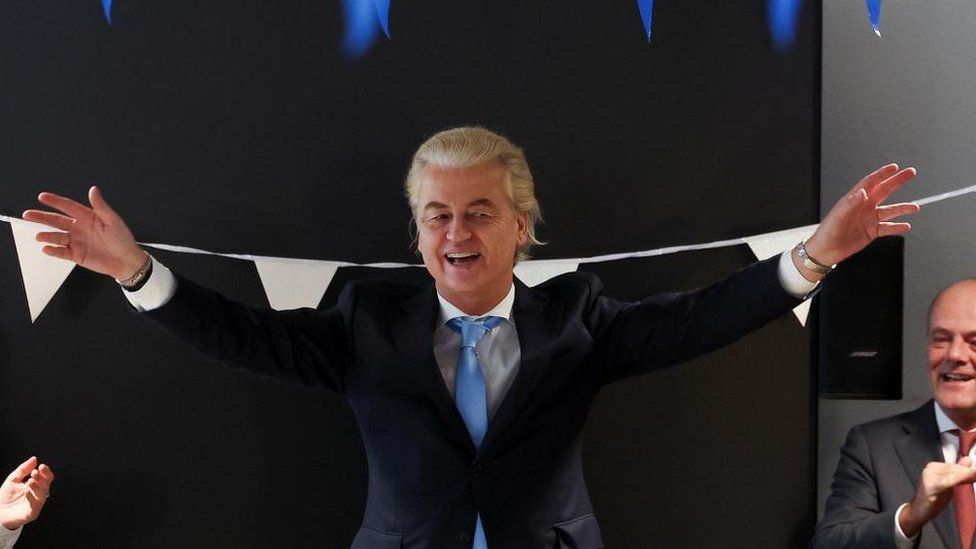-

-
-
Loading

Loading

Geert Wilders, the leader of the Netherlands' Freedom Party (PVV), rejects the label of being far-right and insists that he is advocating for the concerns of ordinary people. In order to broaden his appeal and secure an election victory, Wilders had to tone down his hardline rhetoric and put some of his more inflammatory policies on hold. Despite his greyed hair, his communication skills have reached their peak, allowing him to outperform his rivals with concise slogans on asylum and immigration during TV debates. Wilders argues that the Netherlands has reached its limit and needs to prioritize its own citizens rather than taking in more immigrants. He denies being far-right, stressing that the country values consensus-building and that indigenous people feel ignored due to mass immigration. In an effort to make his party more appealing to mainstream voters, Wilders decided to put his plans to ban the Quran, Islamic schools, and mosques on hold. This move towards moderation led to a significant increase in his party's representation in parliament. However, the victory of the PVV has caused concern among the Muslim community in the Netherlands, as they fear a difficult period ahead. Wilders' policies, such as the proposed ban on Islamic headscarves in public buildings, are still part of his party's manifesto. He has faced legal troubles for his verbal attacks on immigrants of Moroccan origin, including leading a chant demanding "fewer" Moroccans. Despite being likened to the Dutch Donald Trump, Wilders has been able to maintain affable relationships with many of his rivals in politics. His straight-talking nature appeals to a sizeable portion of Dutch society. The PVV's anti-EU stance has been consistent, with Wilders advocating for leaving the EU, even though most Dutch voters do not support this idea. He plans to push for a referendum on "Nexit," but it is unlikely that he will convince other potential coalition partners to agree to it. To form a majority government with centrist parties, Wilders may need to moderate the more radical elements of his party's platform. Some of his proposals, such as strict limits on immigration and a halt to asylum grants, may need to be softened during coalition talks. Despite this, Wilders still finds support among nationalist right leaders in the EU, including Hungary's Viktor Orban, France's Marine Le Pen, and Vox leader Santiago Abascal. Like Giorgia Meloni's election victory in Italy a year ago, it remains to be seen if Wilders can form a right-wing coalition.